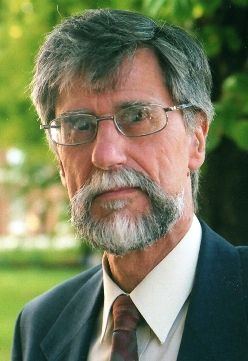 Peter Allen thinks that people in Government need to be more scientifically literate.
Peter Allen thinks that people in Government need to be more scientifically literate.
Geoscientist 19.4 April 2009
In the
January issue of Geoscientist Katherine Royse and Diarmad Campbell raised the matter of how we present geoscientific information to policymakers. When you are deeply embedded in a science discipline it is easy to forget how exclusive the vocabulary of the science is. In geology we switch readily between the scientific and conventional meanings of words like bed, cleavage, thrust, stress, fold, fault and plate and, like all scientists, we have an additional unique vocabulary.
We cannot communicate without it. Neither can we communicate without the person we are talking to sharing some understanding of the fundamental concepts within our discipline. A geologist saying, “not very long ago” could be talking about millions of years. The person listening might think they meant last week. That person might also not understand that movement of 1cm a year can be fast or that an increase of two parts per million per year is a lot. If their background is in law, politics, economics or languages they will have their own vocabularies and conceptual frameworks, which have little in common with ours.
The problem we face is not that we are failing to enunciate our message clearly enough, but that policymakers lack the background to enable them to understand anything we say.
In the present government, three of the 33 cabinet members have a degree in either science or engineering. Margaret Beckett, the Minister of State for Housing, has a degree in metallurgy. The other two are John Denham, Secretary of State for Innovation, Universities and Skills, whose degree is in chemistry, and the Minister for Science in his department, Lord Drayson, who is an engineer with a PhD in robotics.
This is where the good news ends. None of the other ministers of state or parliamentary under-secretaries in that department has qualifications in science or engineering. In three other departments science has a special bearing on policy formulation. These are Environment, Food and Rural Affairs (Defra); Transport, and Energy and Climate Change. Of the 11 individuals who fill the 12 ministerial and parliamentary under-secretary posts in them the only scientist is Joan Ruddock (Department of Energy and Climate Change). Her degree is in botany and chemistry. Her minister is an economist. The minister for Transport is a lawyer and the minister for the Environment has a degree in Russian and Eastern European Studies. Lord Hunt, who carries the brief for climate change in both Defra and the Energy department, has a degree in politics. The picture is no better among the paid officials in these departments. None of the permanent secretaries has any background in science.
The message we should deliver to government is this. In the 21st Century the clever application of science, technology and engineering will be essential to avoid a global humanitarian crisis. Scientists are clearly saying this, but the policymakers do not know how to listen to us. Government must find a way of bridging this gap. Otherwise, the future for our country will be bleak.